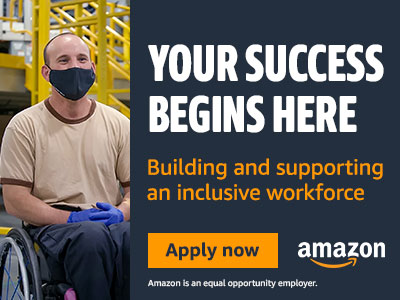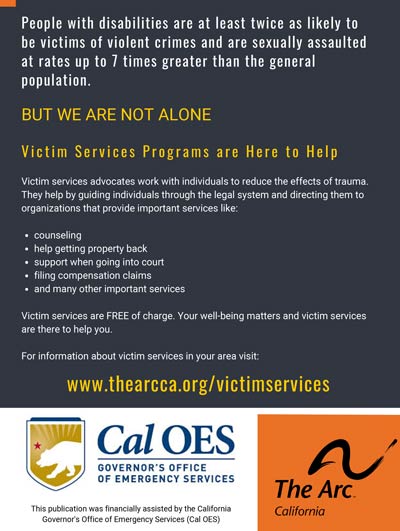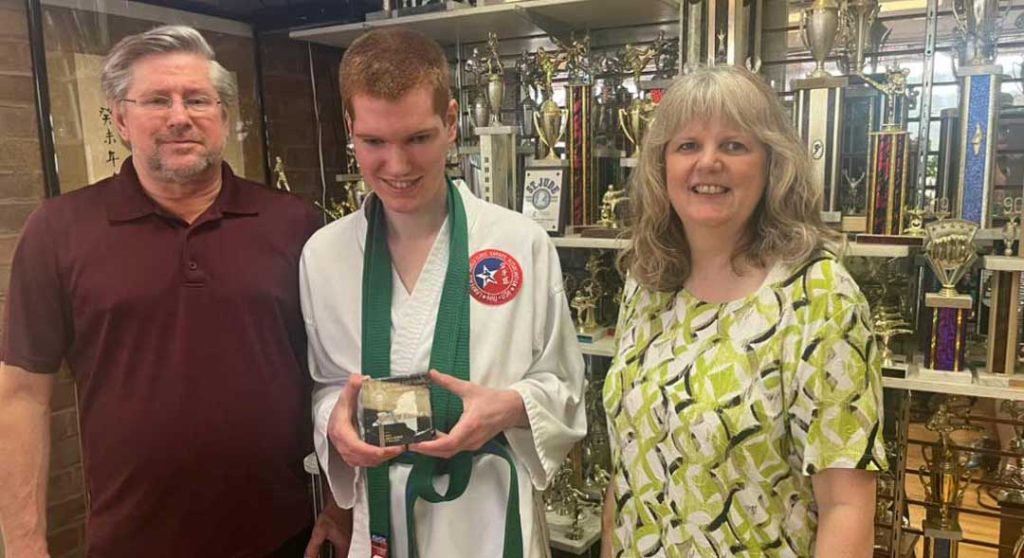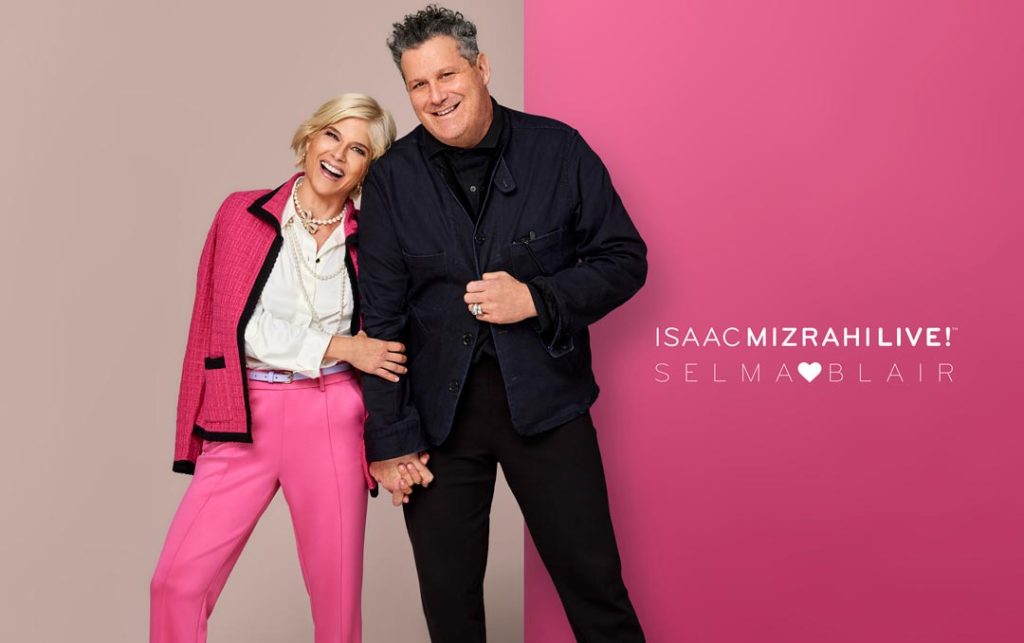Caterina Scorsone is a Canadian-American actress who has appeared in various films and television series, including her well known portrayal as Dr. Amelia Shepherd on ABC’s Grey’s Anatomy. In 2020, Scorsone won the Quincy Jones Exceptional Advocacy Award from the Global Down Syndrome Foundation, recognizing her outstanding commitment to championing the rights and well-being of individuals with Down syndrome. Focusing on raising awareness and understanding for individuals with cognitive diversities and disabilities, Scorsone has consistently used her platform to challenge stigmas surrounding Down syndrome and other disabilities, advocating for increased access and inclusion.
At a picturesque location in the hills of Glendale, California, Scorsone is joined in person by ABILITY Magazine’s Chet Cooper to speak on surviving a devastating house fire, advocating for equity within the Down syndrome community, and learning how to grow as a supportive parent and ally.
Cooper: You’re in a TV show, aren’t you? Something about a doctor, right?
Caterina Scorsone: (laughs)
Cooper: And there’s also another doctor on the show. Did you see her article?
Scorsone: Yes, it’s a wonderful article. And Chandra’s incredible.
Cooper: We’re thinking we’ll just interview everybody on the show, the way we seem to be going.
Scorsone: I think that’s a fantastic idea, I don’t see why not.
Cooper: Tell me what happened with the fire. Are you settled in now with what happened?
Scorsone: Where I’m sitting right now does not belong to me. Luckily, we have insurance and they were really fantastic about finding us a place for all of us to live while we figure out what happens next. It was an electrical fire in a 1924 house. The whole house was engulfed incredibly quickly. We got out, I got all the babies out. But our pets didn’t make it out.
Cooper: Now it makes sense. I read something about it and it sounded like it happened really quick.
Scorsone: And unprecedented. They ended up bringing firefighters to the site to study what had gone on because, generally, with newer construction, houses don’t completely go up like that. It was an unusually fast, ferocious situation.
Cooper: And you’re lucky that you smelled the smoke, saw the smoke in time?
Scorsone: Yeah. It was bath time and suddenly I saw smoke seeping and curling out of the grout around the bathtub. I couldn’t understand what was happening at first. And then I came around the corner and there was a thick column of black smoke coming out of the heating vent. I understood immediately that this was a very bad, big fire. I just started gathering the babies. I didn’t have my phone. It was pitch black. I had to run with the babies to a neighbor’s house to get help. It was a pretty tense situation! My sisters flew out to help deal with the logistics so I could focus on the babies and making sure that they were all feeling safe and OK.
Cooper: What are the ages?
Scorsone: Eliza is almost eleven. Pippa is six and a half and Lucky is three and a half. There have been phases of processing.
Cooper: A new stage of your life.
Scorsone: When something changes, we have to say, “OK, now here’s another chapter.” We’re getting pretty good at that. (laughs) There have been a lot of changes. But my kids are incredible. They’re so curious and joyful and interesting. We’ve focused on that home is where we all are. And in the community that we create. That’s what came out of this.
Cooper: I was just talking to the Surgeon General a few days ago with our psychiatrist, who’s on our team, talking about all kinds of issues about mental health and daily life. His podcasts discuss how to create a life filled with happiness, how to deal with conflict, anxiety, and how to work together to achieve these things.
Scorsone: Right, to make sure that the kids were able to process it. One of the things I’m learning as a public person who’s also a mom–
Cooper: And a doctor on TV–
Scorsone: And a doctor on TV, and also someone who has talked about disability in the context of one of my kids, I want to make sure that I’m always bringing positive information that will move the needle on people having information that will open their eyes and minds to disability and various things. But I also want to make sure that I’m always protecting their experience. For example, with Pippa, I want to make sure that she has an opportunity to tell her own story in the way that she decides about how she wants to be perceived and how she wants her personal story framed. There are aspects about Down syndrome that I can talk about with some level of authority as a parent who has been involved with some of it, but I always want to make sure that I’m protecting their childhood and their personhood in terms of narrative.
Cooper: Going into that, I read something where you were describing the difference between equity and equality.
Scorsone: The way I understand those terms is that we are all equal in terms of our dignity and our right to unfold and actualize in the fullest way possible. We’re all equal there. But in terms of our structural reality, in order for us all to claim that equality, we need equity, and that means that, structurally, we provide resources based on the particularities of each person. For some people, that means they need this. For other people it means that in order to fully actualize. Those won’t always be the same thing, or equal things in terms of resources, but they will result in access to equal actualization, human potential, or potential for self-actualizing and experiencing joy.
Cooper: When you say that, can you think of one good example of how that relates to an individual?
Scorsone: We can talk about all kinds of things in terms of accessibility where disability is concerned, but to bring it to an even more basic idea: If everybody had equal access to size 10 ½ shoes, there will only be some people who are running around with maximum freedom and comfort. I don’t fit into size 10 ½.
Cooper: Really?
Scorsone: (laughs) So to give me those shoes will not give me equal access to my day, right? That’s something that everybody can relate to. And when you bring that into cognitive diversity or other accessibility issues like wheelchair access, different kinds of– well, you know. (laughs)
Cooper: (laughs) I do! That was a great example. Sometimes it gets—some of the language we use sometimes—you’d have to sit and really digest what that meant. And that’s a great example of people understanding different size shoes and they either fit or they don’t fit, and to go through life trying to live in that shoes size, which is not a quality of life anybody would want if you have a size 15.
Scorsone: I think one of the nice things about that example is that there’s no ableist-imposed idea that a particular size of shoe is better than any other size of shoe. You don’t have this proximity to some ideal that’s been imposed by an unconscious bias.
Cooper: Nice. How did you connect with the Global Down Syndrome Foundation?
Scorsone: I think after Pippa was born. It was kind of through the network of the Down syndrome community. There’s such a beautiful and vibrant network of families that have members with Down syndrome. Early on, I made friends with a bunch of moms and parents and kids and heard about GLOBAL, and then I think Michelle Sie reached out. We had a wonderful conversation. Early on, I was still trying to understand what trisomy-21 really was. I was trying to understand–
Again, I didn’t have a lot of exposure. I didn’t have a lot of friends with Down syndrome at that time. I was trying to understand what the impact of the third chromosome was. As it turns out, there’s a lot of different ways that it unfolds. Michelle sat with me and really unpacked what Down syndrome is and some of the gifts and some of the challenges and some of the ways that I can support Pippa. And she started telling me about GLOBAL. I don’t know how much you know about GLOBAL, but basically, research into Down syndrome is very underfunded–
Cooper: Michelle has been in a couple of issues of ABILITY Magazine.
Scorsone: The mission that Michelle and GLOBAL have is so important because big pharma doesn’t do tons of funding for the Down syndrome population and their families. So GLOBAL fundraises and invests in research across the board in terms of medical research. We just had a huge, massive discovery- I think five years ago- where they realized that one of the main things going on with the third chromosome being there is that there’s an inflammatory effect. There’s an autoimmune aspect to some of the symptoms that a lot of people with Down syndrome are experiencing. So, when we approach it from this dramatically different way, basically, you can improve the quality of life for a lot of people who are suffering from inflammation and different kinds of symptoms associated with autoimmune conditions. That was a huge discovery that GLOBAL funded. And now it will change the entire medical approach. And they also fund a lot of things in terms of educational profiles and how to support a full and long and beautiful and healthy and socially connected life for people with Down syndrome and their families.
Cooper: Have you and your daughter experienced some of the fashion shows?
Scorsone: Yes! When I first started working with GLOBAL it was during COVID. We did a lot via Zoom the first couple of years I was involved with the fashion show. It was like me in the [Zoom] box. But last year we got to go to the fashion show for the first time, and Pippa came with me. We were not sure at first because it was kind of late at night. We got all dolled up and Pippa was ready to go. When it came down to it, she was like, “This is a lot of people!” and she wanted to go back upstairs.
I got to go [in 2022] and I brought with me as many cast members from “Grey’s Anatomy” as possible. We had a really good group of the new interns on the show, and E.R. Fightmaster and Anthony Hill. Everyone came out to support the fashion show. We went again this year and brought Kevin McKidd and Danielle Savre, Laura Linney was there as well. It was so much fun!
Cooper: They’re great. I don’t know how many I’ve been to, at least one. (laughs)
Scorsone: (laughs)
Cooper: If you look back at some of the past issues of the magazine, you’ll see interviews with Quincy Jones and Michele’s father and some of the doctors at the institute. We covered the fashion show when it was in Denver. Have you met Quincy?
Scorsone: When I received the Quincy Jones Advocacy Award, it was during COVID. It was just by Zoom. Hopefully, though. Maybe next year.
Cooper: I wanted to ask you about Mattel put out a new doll. What are your thoughts about that?
Scorsone: I haven’t given it too much thought. I’m thinking about it on the fly right now. I do think that representation is really, really important, that everybody wants to see themselves represented in whatever kind of media is available. In terms of the doll, when I was a kid, I didn’t have Barbies.
My mom was kind of opposed to us having Barbies because she felt like it–
Cooper: I had several.
Scorsone: (laughs) You did? My mom felt it would promote negative body image. I think by the time my youngest sister came along, she was allowed to have Barbies as long as the Barbie had a profession. (laughs)
Cooper: (laughs)
Scorsone: I haven’t been following that story too closely. What is the buzz on that?
Cooper: As you would imagine, there’s a mix on that. As you said earlier, there’s a spectrum when it comes to Down syndrome and not one size fits all. Within the movement, you can’t say, “Oh, that person looks like they have Down syndrome.” There is that controversy that goes on about how you represent someone. What did you do to carve out the facial structure of that doll to say that you’re representing someone with Down syndrome? There’s that back and forth.
Scorsone: That’s interesting. I would love to read some of those dialogues so I can form a more educated opinion about it. I think that the nice part about it, if I’m to find the positive, is that the Down syndrome community is being considered and included in the conversation. Then it becomes a question of, is there harm? Is this the conversation that we need to be having? Is there more nuance that needs to be added by members of the community.
Cooper: Sometimes it takes certain steps, like you mentioned, to get the nuance right. But even then, you’ll always have the naysayers.
Scorsone: I think one of the things that I try to be very aware of is that, for me, I’m still very much learning. Again, I am somebody who feels that not only is there a spectrum of opinion and experiences within the Down syndrome community, but as someone adjacent, like an ally and co-conspirator to the disability community right now, I constantly need to be learning from people who are having experiences, their own experiences, about what feels harmful and what feels helpful. And I won’t always get it right, either.
Cooper: I don’t think anyone can always get it right. There is always the subjective, and there will always be some people who have a different opinion, who look at life differently, with different life experiences. We can only do our best to try to move the positive awareness forward with best intentions and then not modify those intentions where it might be causing them harm.
Scorsone: There is always a risk that there might be harm that nobody anticipated. So we always need to be able to reconsider and modify and find new language.
Cooper: The number of people I’ve experienced over the years who slow the growth of awareness down because they’re so angry, and they lash out at almost anything. And people then get fearful of doing anything positive because they might get attacked. I applaud Mattel for trying their best to step into this area. And they’ve done some other things with Barbie using a wheelchair and other types of diversity. I think their intent is the right thing.
Scorsone: I imagine some of our job as communicators and medical communicators is to show capitalist America how inclusion can work for them.
Cooper: The magazine has to do that constantly. If we get advertisers, that’s just not the right thing to do, but it’s a good business decision. We have to use that language constantly in our sales team.
Scorsone: There are some people I’ve talked to who don’t have a lot of exposure to disability. And when I say, “Disability is not something that only some people will experience. All of us, people who are typically abled or whatever—As we go through life, the life cycle, all of us will experience disability of one kind or another. All of us.” It suddenly turns on the light bulb for people.
So, when we focus on making sure that everybody has equity and accessibility, yes, it’s the right thing to do. But ultimately, it’ll benefit every single human being who’s having the experience of being a human being at some point.
Cooper: I’ve given talks, and say almost the same thing. Disability is part of the fabric of life. If you look at the bell-shaped curve of life, a baby needs a lot of help—as you go down hill on the other side, we fall apart. We age. Our sight, osteoporosis, cancer, hearing loss, etc., the majority of people experience those disabilities later in life. But of course at any moment we can have an accident, a health condition that comes your way…
Scorsone: On Grey’s Anatomy, every single episode is about somebody who is living their life typically, and something happens. And within an instant they are now in a state of disability of one kind or another. Every single episode. And our show is on every single Thursday for 20 years. Everyone relates to it. (Laughs) It’s a lot of episodes. The other thing is, I do think there is a lot of social conditioning around the way typically abled people engage with the “disability of infancy.” It’s all been marketed to us as this beautiful, gorgeous time of life where you get to care for this being who is in a state of absolute vulnerability, and you get to help them navigate the world and discover the world with all of their physical challenges at that point. And we are–it’s marketed that we are to understand that this is a huge privilege for us to be engaged in this kind of witness.
So why, when that same opportunity presents itself at the end of our parents’ life cycle, our friends’ life cycle, our own life cycle, why is it not marketed in a way that—Oh my God! You get to witness this human being in various states of vulnerability, potentially transitioning. You have been invited into this sacred space of offering the kind of human exchange on the other end of a very typical curve of ability. It’s not marketed the same way.
Cooper: That’s a really interesting point. We don’t value our elderly. And we’re all going to be there, unless you die instantly. It is interesting, and in the fact that there’s such a correlation of what you’re saying in the baby, where the baby can’t speak, can’t walk, can’t go to the bathroom by themselves, everything that goes on with somebody with a severe condition of let’s say high-level spinal cord injury, they need support. We’re a strange being.
Scorsone: Parenthood is odd. It’s not like helping your baby is easy. Everyone’s tired. Everybody’s running on fumes at some point. There are absolutely challenges associated with caring for a human being, yourself included. It’s just that we have framed it differently. And we understand that as a parent, that it’s a privilege to care for a person. It’s not just you helping them because it’s the right thing to do. It’s you getting the opportunity to witness another human being.
Cooper: I want to talk on your personal side. How did you know you wanted to become an actor?
Scorsone: Oh! It just unfolded for me. I didn’t have the typical story where people are like, “Ever since I was six years old, I wanted to be an actor!” I kind of thought I would probably be a doctor. (laughs)
Cooper: Me, too!
Scorsone: (laughs) That’s what I thought I would do. I came from a family of academics, but also, my parents ran homeless shelters. We didn’t have the kind of resources– and I was one of five kids–that were easily going to let me pay for college. When my sister and her friend were talking about having an agent and acting when I was younger, I was like, “Cool, that’ll help me save up for college so I can become a doctor.” So, I started acting as a young person, and it turned out it was working well. I kept working, and I developed quite a love for it, but I still hadn’t caught up to the idea that I would do that as an adult profession until I was a late teenager. And then I thought, “Maybe I’ll do this.” Around 19 I was like, “I don’t think I want to do this. I think I want to be a midwife.” I changed directions and pulled out of that.
Cooper: Me too!
Scorsone: (laughs) And then I came back to it after undergrad. After I saw the first season of Grey’s Anatomy.
Cooper: So you did go to college?
Scorsone: Yes, I did.
Cooper: Were you taking acting at that point?
Scorsone: No, I had quit acting at 19. I had seen enough, and I wanted to do something more meaningful because I hadn’t quite connected with how meaningful narrative storytelling could be. I quit and I studied Literary Studies and philosophy and comparative religions at University of Toronto. And during finals of my last year, I watched the first season of Grey’s Anatomy and I was like, “Oh, I want to be a doctor.” So I went to the medical faculty and did a six-week course on arts and sciences for people who wanted to go into medicine. And I got to the end and I was like, “Actually, I think I just want to be on Grey’s Anatomy.” (laughs)
Cooper: (laughs) “I want to play a doctor.”
Scorsone: And then I moved out to LA and I was still into the idea of doing midwifery. So I went and studied with a midwife in Tennessee. I studied on a farm in Tennessee and started apprenticing with a midwife in LA. But then, I started booking work as an actor again. I had developed enough of an understanding of the sacredness of storytelling that I had come into a passion about the power of narrative and how beautiful and healing it can be.
I had these two things I wanted to do, and eventually, acting was like, “We’re going to take over here!” So I ended up on Grey’s Anatomy.
Cooper: That’s quite a gig! Do you also write?
Scorsone: I have. But with three kids and Grey’s, writing has had to take a back seat. But yes, I really do enjoy writing. And maybe when the kids are a little bit bigger, maybe I’ll–
Cooper: Write some screenplays, produce, do that kind of combination?
Scorsone: I’d love to work on that aspect of things, for sure.
Cooper: What did you think the perception of what you thought motherhood was prior to becoming a mother?
Scorsone: I think the big transition that happened was that before I was a mother, it was all projected ideas of what motherhood was. I think the unconscious idea I had was that you have this baby and then you help them to become an adult, become a person, you help mold their journey.
When I actually became a mother, I met babies who were already people who were unfolding. It wasn’t for me to unfold, to make them into adults. It was for me to facilitate their unfolding. Instead of this very active parenting that I thought I would have to do, it was more a question of-with curiosity and respect-stepping back and allowing them to unfold and tell me who they were and tell me what kind of adult they wanted to be and what they needed to become that kind of adult. Giving them witness and giving them safety, a container to safely unfold. If you apply doctor terms to it, I think now, I understand that with parenting, it’s all “First, do no harm.”
They will unfold. They are these beautiful little souls and beings that, if you don’t interfere with them, they will be beautiful in whatever way is right for them. It’s about giving them enough safety and love and reflection that they can find out what kind of human being they want to be and then helping them do that.
Caterina home photos by Nancy Villere




























